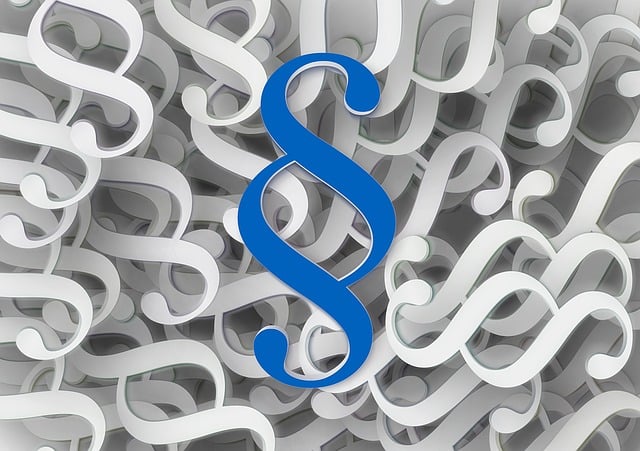Criminal law enforcement plays a vital role in maintaining integrity within the complex financial services sector by investigating and preventing crimes like fraud, money laundering, and embezzlement. With global financial systems becoming more intricate, its scope has expanded to include high-stakes cross-border cases demanding specialized knowledge in Financial Services Regulatory Law and Litigation Trends. Effective enforcement strengthens investor trust, deters illicit activities, and fosters stability through advanced investigative methods and robust legal frameworks. Recent trends in litigation have led to a focus on preventive measures, proactive prosecution, and innovative technology use for evidence discovery and risk prediction. International collaboration and data analytics are crucial in combating global financial crime, with shared strategies and specialized legal teams ensuring justice across diverse legal systems.
Criminal law enforcement plays a pivotal role in safeguarding the integrity of financial services, ensuring stability through robust regulatory frameworks. This article explores key aspects of this intricate relationship, delving into the impact of Financial Services Regulatory Law and Litigation Trends on criminal justice. We analyze emerging challenges in financial crime investigation, highlighting innovative strategies, and offer a global perspective on combating financial services fraud. By examining these elements, we aim to illuminate critical trends shaping the future of criminal law enforcement in the financial sector.
- The Role of Criminal Law Enforcement in Financial Services
- Understanding Regulatory Law: A Cornerstone for Financial Stability
- Litigation Trends Shaping the Landscape of Criminal Justice
- Key Challenges and Innovations in Financial Crime Investigation
- Global Perspectives on Combating Financial Services Fraud
The Role of Criminal Law Enforcement in Financial Services
Criminal law enforcement plays a pivotal role in ensuring integrity within the financial services sector. Its primary function is to investigate and prevent financial crimes such as fraud, money laundering, and embezzlement, thereby safeguarding consumers and maintaining market stability. In recent years, with the rise of complex global financial systems, the scope of criminal law enforcement has expanded to include high-stakes cases that span across the country. These investigations often involve intricate Financial Services Regulatory Law and Litigation Trends, requiring specialized knowledge and expertise.
The impact of effective criminal law enforcement in financial services cannot be overstated. It fosters trust among investors by demonstrating a robust legal framework capable of addressing fraudulent activities and protecting sensitive information. Moreover, it achieves extraordinary results by using advanced investigative techniques to uncover complex schemes, ensuring that perpetrators face justice and victims receive redress. This proactive approach not only deters future criminal activities but also contributes to the overall resilience of the financial sector in today’s fast-paced and interconnected global economy.
Understanding Regulatory Law: A Cornerstone for Financial Stability
In the realm of financial services, understanding Regulatory Law is a cornerstone for achieving and maintaining financial stability. This legal framework, encompassing Financial Services Regulatory Law Litigation Trends, plays a pivotal role in safeguarding consumers, ensuring fair practices, and promoting transparency within the industry. By adhering to these regulations, institutions can mitigate risks, foster trust, and create a robust environment conducive to growth.
The impact of Regulatory Law extends beyond compliance; it influences litigation trends significantly. As the financial landscape evolves, so do legal challenges, with complex cases involving corporate and individual clients testing the boundaries of regulatory oversight. These dynamics often lead to jury trials, where the interpretation of Regulatory Law becomes a pivotal factor in determining liability and reparations. Navigating these complexities requires a deep understanding of not just the law but also the philanthropic and political communities’ evolving expectations.
Litigation Trends Shaping the Landscape of Criminal Justice
In recent years, Financial Services Regulatory Law Litigation Trends have significantly influenced the landscape of criminal justice. As regulatory bodies become more stringent in their oversight, litigation trends are shifting to address complex issues related to corporate and individual clients. This has led to an increase in cases involving white-collar crime, where the line between business activities and criminal behavior becomes blurred. The legal community is navigating these trends by adopting innovative strategies that balance the need for regulatory compliance with the rights of both corporate and individual clients.
These changes are driving a new era of criminal law enforcement, with a heightened focus on preventive measures and proactive prosecution. Legal professionals are increasingly utilizing advanced technologies to uncover evidence and predict potential risks. This shift in approach ensures that justice is served while also facilitating more efficient and effective legal processes for his clients. The ongoing evolution of Financial Services Regulatory Law Litigation Trends underscores the dynamic nature of criminal justice, reflecting a constant adaptation to address emerging challenges.
Key Challenges and Innovations in Financial Crime Investigation
The landscape of financial crime investigation is marked by both formidable challenges and groundbreaking innovations. One of the key hurdles is navigating complex global financial systems, where illicit activities often span borders, requiring international cooperation and coordination. The dynamic nature of financial services and regulatory law necessitates that investigators stay abreast of evolving litigation trends and legislative changes to effectively pursue fraudsters.
Innovations in technology, such as data analytics and artificial intelligence, have significantly enhanced investigative capabilities. These tools enable analysts to sift through vast datasets, uncover patterns, and identify anomalies indicative of fraudulent behavior. This technological advancement contributes to an unprecedented track record in financial crime prosecutions by providing robust evidence and streamlining the respective business processes involved in all stages of the investigative and enforcement process.
Global Perspectives on Combating Financial Services Fraud
The global fight against Financial Services Fraud (FSF) has become a complex and evolving landscape, with each nation adopting its own approach through Criminal Law Enforcement. The varying legal systems and regulatory frameworks across borders present unique challenges in addressing this transnational crime. However, several common threads emerge in the strategies employed to combat FSF, particularly in the realms of Financial Services Regulatory Law and Litigation Trends. Countries are increasingly collaborating and sharing intelligence to stay ahead of sophisticated fraudsters who exploit loopholes in different jurisdictions.
While a general criminal defense may be a cornerstone for many legal teams, those specializing in FSF cases bring a unique skill set to the table. They navigate complex financial instruments, international laws, and regulatory frameworks to construct winning challenging defense verdicts for their clients. This specialized knowledge, coupled with staying abreast of global litigation trends, is vital in ensuring that justice is served while also protecting the integrity of the financial sector worldwide.
In conclusion, the interplay between criminal law enforcement, financial services regulatory law, and litigation trends is paramount in fostering a stable economic environment. Understanding and addressing these dynamics, as highlighted by key challenges and global perspectives on combating financial services fraud, are essential for ensuring integrity within the industry. By delving into these areas, we can navigate complex landscapes and continue revolutionizing approaches to justice, ultimately enhancing financial stability through proactive measures and innovative investigations.






